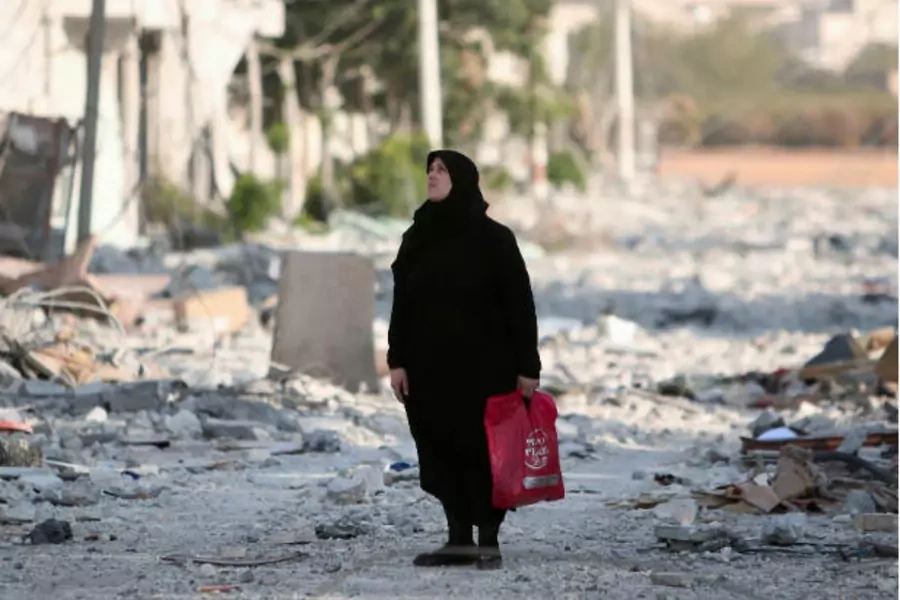Women Around the World: This Week

More on:
Welcome to “Women Around the World: This Week,” a series that highlights noteworthy news related to women and U.S. foreign policy. This week’s post, covering September 10 to September 17, was compiled with support from Becky Allen, Anne Connell, and Lauren Hoffman.
Women and the Syrian transition Last week, U.S. Secretary of State John Kerry and Russian Foreign Minister Sergey Lavrov negotiated a two-day extension of the ceasefire in Syria, which began September 12. A UK-based monitoring group recorded no casualties in the areas covered by the ceasefire during its first forty-eight hours, but the calm was marred by Friday morning as severe clashes were reported near Damascus. The cessation of fighting was intended to allow aid to reach civilians in besieged areas, including rebel-held portions of Aleppo, where residents are in desperate need of baby formula, flour, fuel, medicines, and wheat. The Syrian Women’s Advisory Board to the UN Special Envoy for Syria, established in February of this year, recently suggested that Syrian women bear the brunt of the humanitarian crisis, with member Insaff Hamad asserting that “women can and may well be the backbone of the Syrian reconciliation.” Last week, the High Negotiation Committee (HNC), an alliance of more than thirty moderate Syrian opposition groups, introduced a twenty-five-page transition plan for the conflict’s end. Along with proposals for a transitional governing body, the formation of a joint military council, and a commitment to democratic non-sectarian values, the plan emphasized the importance of women’s participation in the transition process, including through a 30 percent gender quota for state institutions and decision-making bodies.
Female jihadists arrested in France Three young women who were part of a French cell of the so-called Islamic State group were arrested in Paris on charges related to a planned attack on Gare de Lyon, a main train station in the city’s center. Several others—primarily women—were later detained in connection to the plot. The arrests followed the discovery of a car packed with containers of gas and diesel beside Notre Dame cathedral. Authorities suggest that the women-led extremist cell may mark a shift in Islamic State tactics toward promoting women as terrorist agents. As prosecutor Francois Molins stated, “if at first it appeared that women were confined to family and domestic chores by the Daesh terrorist organization, it must be noted that this view is now completely outdated.” Until recently, the extremist group barred the deployment of women in martyrdom operations. Reports estimate that more than one-third of the approximately seven hundred French citizens who have joined the Islamic State in Syria and Iraq are women, and those returning to Europe from Iraq and Syria—as well as self-radicalized women—pose a growing challenge for law enforcement.
Global Fund prioritizes gender equality Earlier this month, the Global Fund launched its 2017-2022 strategy, which for the first time includes the promotion of gender equality as one of its four top-line strategic objectives. Previously, the Fund’s efforts to advance the health and status of women and girls were guided by a parallel Gender Equality Strategy (2008) and Action Plan (2014). The new, integrated strategy aims “to scale up programs to support women and girls and invest to reduce health inequities.” With its newly proposed allocation strategy, the Global Fund will hone investments on the ground, seeking in particular to reduce HIV prevalence among adolescent girls in sub-Saharan African countries with the highest infection rates. Target countries in which the Global Fund will address gender-related health barriers include Kenya, Mozambique, Nigeria, South Africa, Tanzania, Uganda, Zambia, and Zimbabwe. The announcement of the new strategy came days before the opening of the Global Fund’s Fifth Replenishment Conference, held September 16 to 17 in Montreal, where world leaders gathered to set funding priorities.
More on:
 Online Store
Online Store